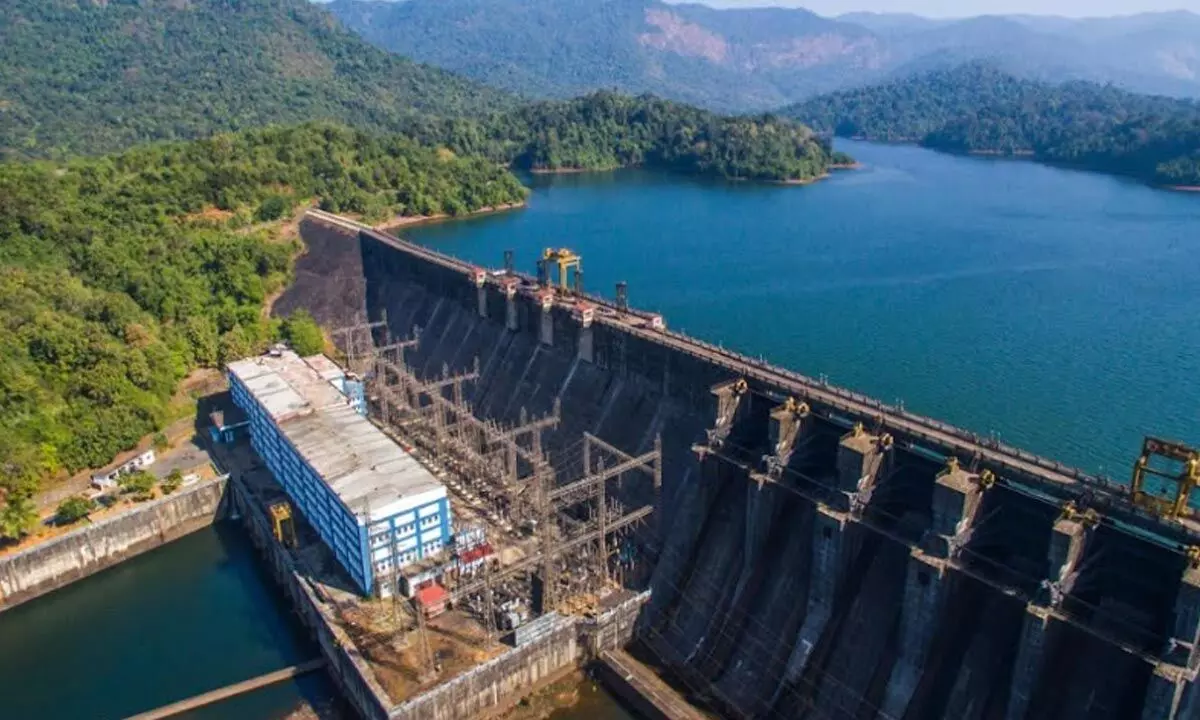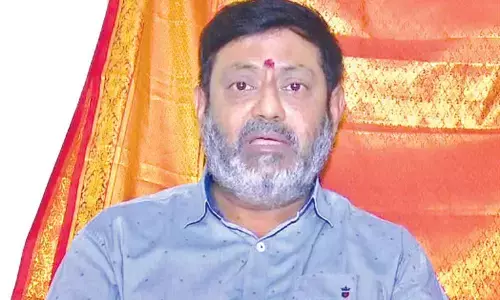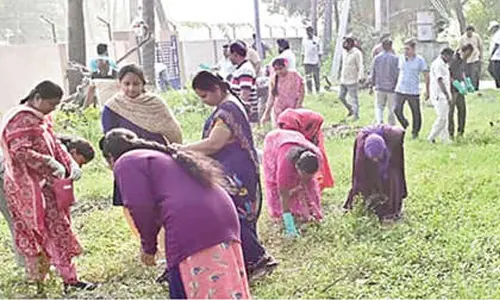Sharavathi Linganamakki reservoir power Station faces shutdown due to water shortage

The Sharavathi Linganamakki Reservoir Power Station, renowned for being the second-lowest cost electricity producer in Asia, is grappling with a grave crisis as it gradually ceases power generation due to an acute shortage of water
Shivamogga: The Sharavathi Linganamakki Reservoir Power Station, renowned for being the second-lowest cost electricity producer in Asia, is grappling with a grave crisis as it gradually ceases power generation due to an acute shortage of water. The reservoir's water level has been steadily diminishing, primarily attributed to the unrelenting drought conditions.
The impending cessation of hydropower generation poses significant challenges, and it is anticipated that the plant will be entirely powerless by the time summer arrives. As the Sharavati Power Plant enforces load shedding measures, farmers and residents are already reeling from power disruptions. This is particularly significant since the state government had been providing free electricity under the Griha Jyoti Yojana, but now, the prospects of an electricity shortage are looming large.
Adding to the concerning scenario, it has been revealed that the Lingamanakki reservoir possesses enough water reserves for power generation for a mere 140 days. Without the replenishing grace of rainfall, the reservoir's water levels are expected to reach critically low levels by the summer season, plunging the situation into further jeopardy.
The repercussions of this impending power shortfall are far-reaching, as the Sharavati Power Plant plays a substantial role in meeting the state's electricity demand, supplying approximately 25% of the needed power. In situations where thermal power plants are commissioned, the demand for hydropower sources tends to surge. In the past, the Sharavati Power Plant had been commendable in sustaining power supply during trying circumstances. However, the current deficiency of rainfall, with the reservoir being only 50% filled, poses a formidable challenge. The recent conclusion of the rainy season further exacerbates the situation.
In-depth analysis of the Sharavati Power Plant's water reservoir reveals that, as of Wednesday, it contained 1786.30 feet of water, with an inflow of 629 cusec. Presently, 2691.75 cusecs of water are utilized for electricity generation, signifying that only 43.45% of the reservoir's capacity remains. A stark comparison to the previous year at this time demonstrates a significant deficit in water levels, with 1813.60 feet recorded in the reservoir.
The situation has taken a dire turn, as the months of August and September have witnessed minimal rainfall, and the onset of thermal power plants has led to an added burden on the Linganamakki reservoir. In the absence of imminent rain, the villagers residing in the Sharavati backwater region face the possibility of restricted river travel and apprehensions about securing water for their gardens.
As the crisis deepens, the need for an immediate and sustainable solution becomes evident, especially as Linganamakki reservoir's capacity for electricity generation dwindles to a mere 140 days. The current power generation figures for the Sharavati Power Plant are at 1038 MW, and this crisis emphasizes the importance of embracing alternative energy sources like solar power. Environmentalists and experts call for increased investments in solar energy generation, advocating for solar panels on government buildings as part of the solution to address the imminent power shortage.
Furthermore, the declining water levels in the Linganamakki reservoir are a cause for concern in the Sagar, Kargal-Joga area. The government is urged to consider contingency measures for drinking water, as the repercussions extend to transportation issues for launches operating in the backwater region, potentially impacting the connected villages as well.














